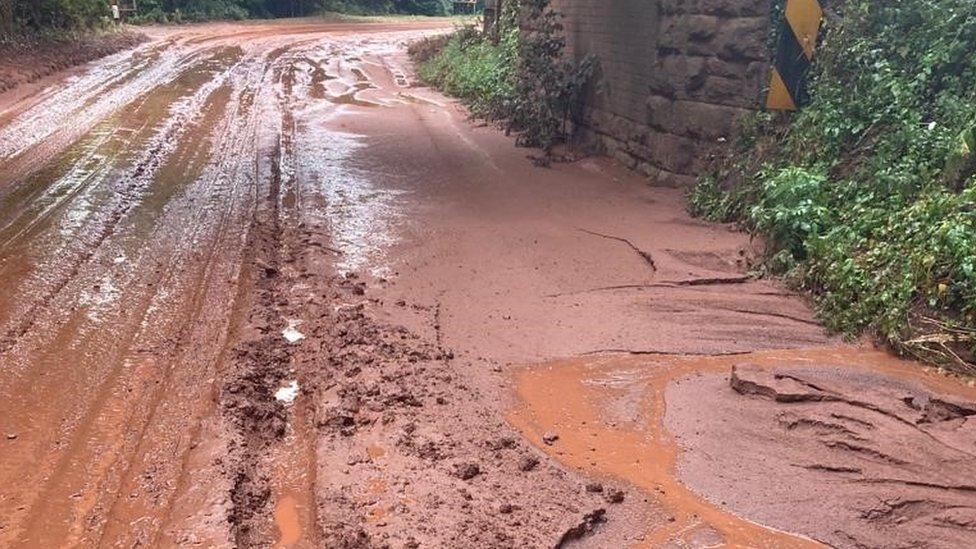Farmer fined £40,000 after mudslide pollutes river
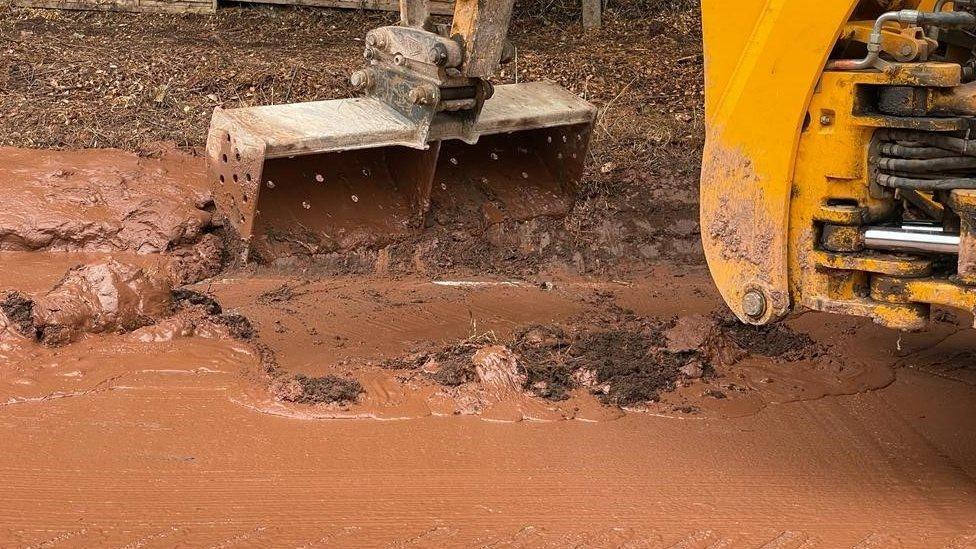
David Mitchell pleaded guilty to causing silt laden water to enter the water stream
- Published
A farmer has been ordered to pay more than £40,000 after allowing a silt, soil and potato mudslide to pollute a nearby river.
David Mitchell, of Hillcommon, near Milverton, Somerset, was renting a field in Combe Florey to grow and harvest potatoes in September 2022.
According to the Environment Agency (EA), thunderstorms and wet weather conditions resulted in the loss of an estimated 50 to100 tonnes of soil from the field.
The sediment and potatoes could be seen floating in the River Tone tributary and running along the A358, which had to be shut twice to enable clean ups to be completed.
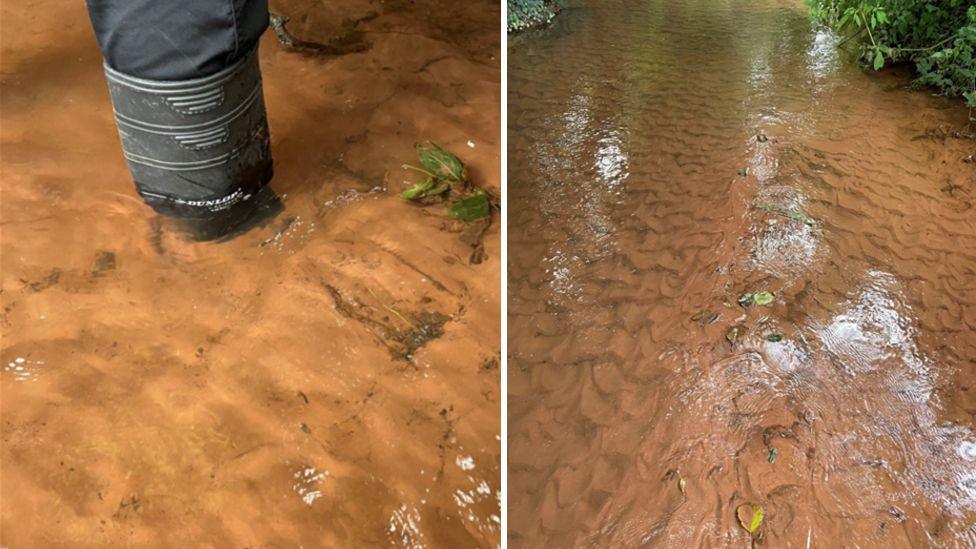
A considerable length of the bed of the watercourse was found to be covered, bank to bank, in a thick layer of sediment
At Taunton Magistrates Court on 18 June, the judge found the pollution was so significant that it would take "a winter of normal water flow to wash the sediment away".
Mr Mitchell pleaded guilty to causing silt laden water from a field under his control to enter a stream on two occasions, in August and again in September 2022.
The EA investigations revealed the earlier incident in August had also closed the A358.
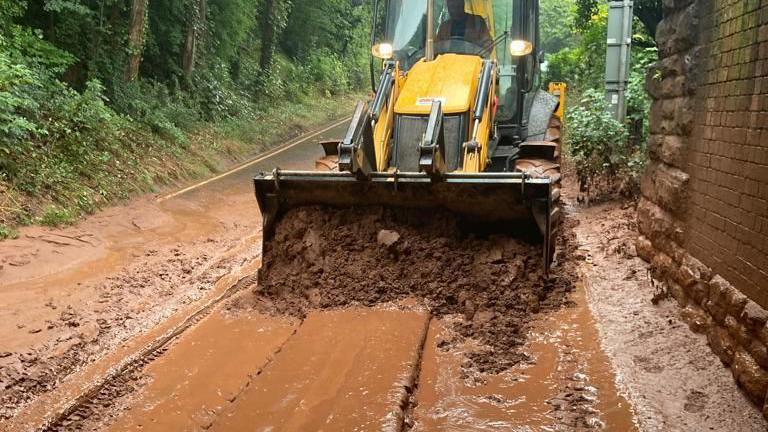
The soil deposited under the railway bridge was so deep it prevented vehicles from being able to use the A358
At the time, Mr Mitchell was provided with silt fencing and advice on mudslide prevention, paid for by the Somerset Rivers Authority.
However only a small section of fencing was installed, alongside a small number of hay bales and a soil embankment at the bottom of the field in an attempt to prevent further soil from leaving the field.
It was also established that the potatoes had mainly been planted up and down the sloping field, which "significantly increased the risk" of soil erosion and run off.
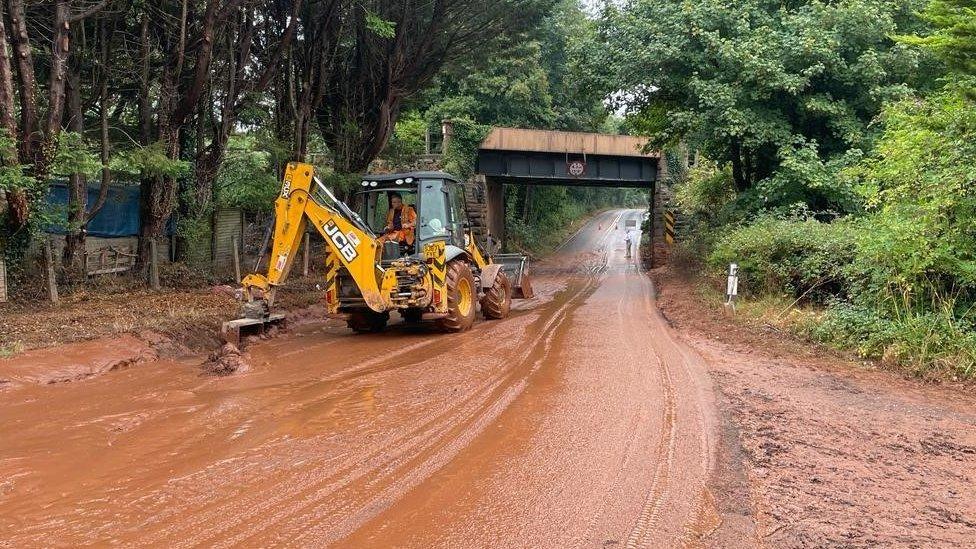
More than 50 tonnes of mud and potatoes were shifted from the A358 in August
David Womack from the EA said: "David Mitchell had control and custody of the land he rented up until the point of harvest and was therefore responsible for the land management practices.
"No formal risk assessment and no adequate precautions to prevent soil loss had been taken.
"This made it highly likely that soil erosion and environmental damage would occur in even moderate rainfall conditions.
"As an experienced potato farmer he should have identified the risks of using this field and taken reasonable steps to prevent large scale soil loss."
Get in touch
Tell us which stories we should cover in Somerset
Follow BBC Somerset on Facebook, external and X, external. Send your story ideas to us on email or via WhatsApp on 0800 313 4630.
Related topics
- Published6 September 2022
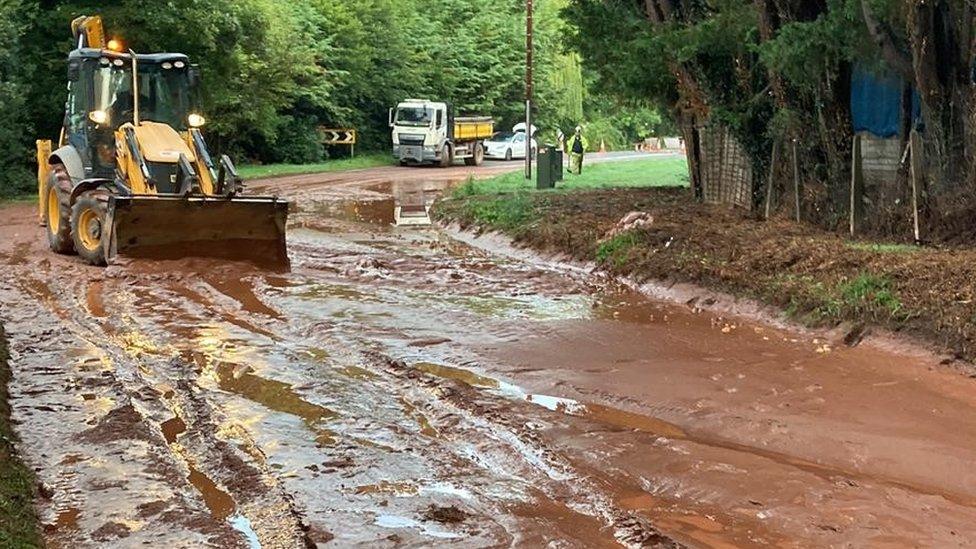
- Published16 August 2022
